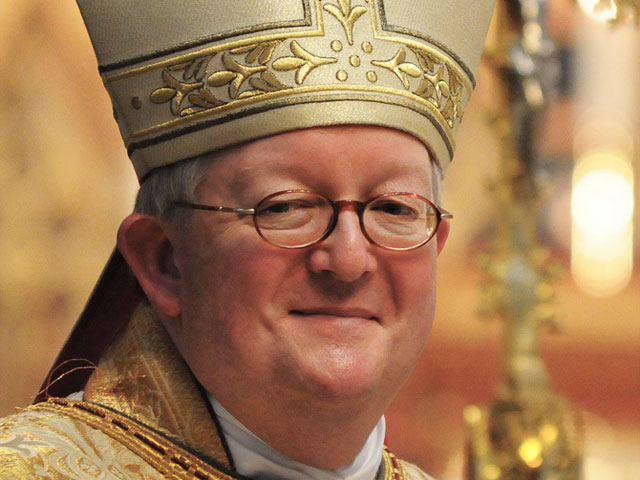“Is the pope Catholic?” is an old question, suggesting a rather obvious answer. Of course the pope is a Catholic, so the old saying flourished.
Neverthelss, there are mainstream journalists who seem to be surprised when a Catholic institution actually acts like one. The sweep of the Second Vatican Council apparently gave lots of people the idea that “Catholic” is some kind of generic brand name and not necessarily an identity, with specific traditions and doctrines, to be maintained or (gasp) even enforced.
Consider the case of Santa Clara University, located in the heart of California’s Silicon Valley. It’s a school in the Jesuit tradition, as the saying goes, built around a mission whose church is pictured here.
That heritage doesn’t guarantee much in today’s multicultural environment, however. Many Catholic schools allow practices that would make the institution’s founders blush, such as multi-year presentations of a play best described here as “The V-Monologues” at Notre Dame University in South Bend, Ind.
Now, however, there’s an apparent change in the air. Let’s pick up the action with the San Jose Mercury News:
SANTA CLARA — A decision by Santa Clara University’s president to drop health insurance coverage of elective abortions for the Catholic university’s faculty and staff has triggered a serious rift at the school.
Many faculty members say they were blindsided by the move at an institution that has long prided itself on open communication and governing by consensus.
The thorny issue echoes a nationwide debate at Catholic universities over their institutional identities and ability to consider the convictions of those who do not identify with — or who disagree with — certain principles the Catholic tradition holds as central.
The uproar at SCU comes on the heels of a contentious vote this week by trustees of Loyola Marymount University in Los Angeles, another Jesuit school that decided not to provide coverage for elective abortions. And, ironically, the controversy came to a boil on the same day that California Gov. Jerry Brown, a former Jesuit seminarian, went off in a different direction by signing two bills aimed at increasing access to abortion in California.
Well now: “Many faculty members say they were blindsided. …”
As my colleague Bobby Ross was kind enough to point out in discussing this, just how “many”? And, I would add, who are these “many.” Surely those who are Catholics shouldn’t have been “blindsided,” right? Hey journalists: Can you say, “Ex Corde Ecclesiae”?
We don’t know the answers to these questions, because the story quickly moves along.
The Merc, as the paper is known locally, omits mention that Brown is a Santa Clara grad (as is California’s lieutenant governor, Gavin Newsome, by the way), instead forging ahead to present the (to be expected) opposing reactions to the move:
“This really makes Santa Clara University’s express commitment to openness, diversity and inclusiveness ring hollow,” said history professor Nancy Unger, who is Catholic.
University President Michael Engh, a Jesuit priest, said in a two-page letter dated last Thursday and sent to 1,600 employees that the university carefully studied how the school can structure its medical insurance plans in 2014 to be compliant with federal and California laws and regulations while representing its values as a Jesuit university. The university concluded that “our core commitments as a Catholic university are incompatible with the inclusion of elective abortion coverage in the University’s health plans,” he stated in the letter.
The lower third of the article discusses Brown’s move to “let nurse practitioners, certified nurse-midwives and physician assistants with special training perform the most common kind of first-trimester abortion.” This kind of shirttail can fill inches or combine news items, but it seems this copy could have been better replaced by some text explaining the reason(s) for the position taken by SCU and other Catholic schools.
At a school — Santa Clara University — that has a religious studies department, not to mention a Jesuit graduate program in nearby Berkley, the Merc‘s reporters apparently couldn’t find anyone in either program to comment on the reasoning behind this move. Strange, but they did locate one faculty member who could put this into the necessary context:
But professor John Hawley, chairman of the English Department, said on the one hand the university “presents and studies all sorts of ideas, not just those of the Roman Catholic Church.” But on some ethical issues, he said, “it needs to take a particular stand lest it be seen as anti-Catholic. And this is one of them.”
That the idea of a Catholic university putting itself in line with the teachings of its sponsoring denomination is a shock might illustrate a general lack of journalistic understanding of the legal relationship, in terms of church law, between Rome and its institutions. A greater exploration of this would have offered readers a better understanding of the matter than the discussion of SCU alum Brown’s unrelated medical actions.











